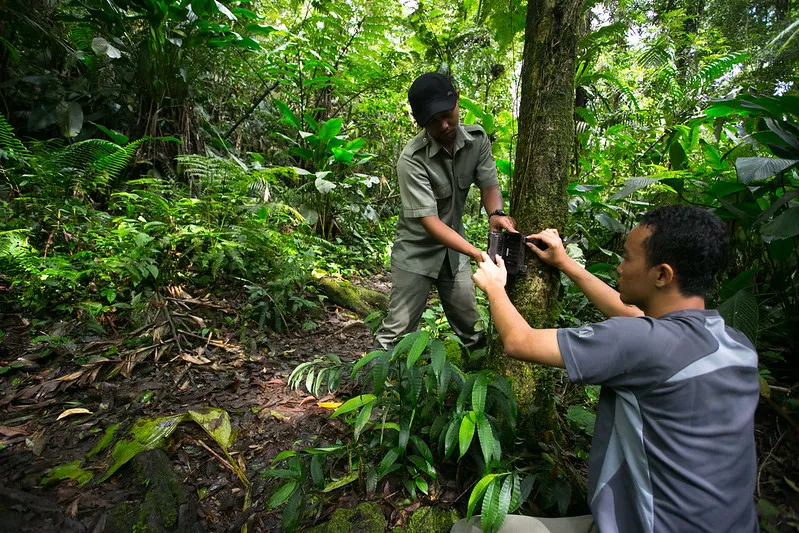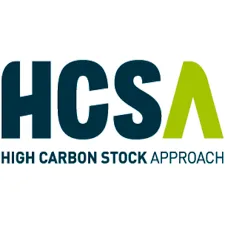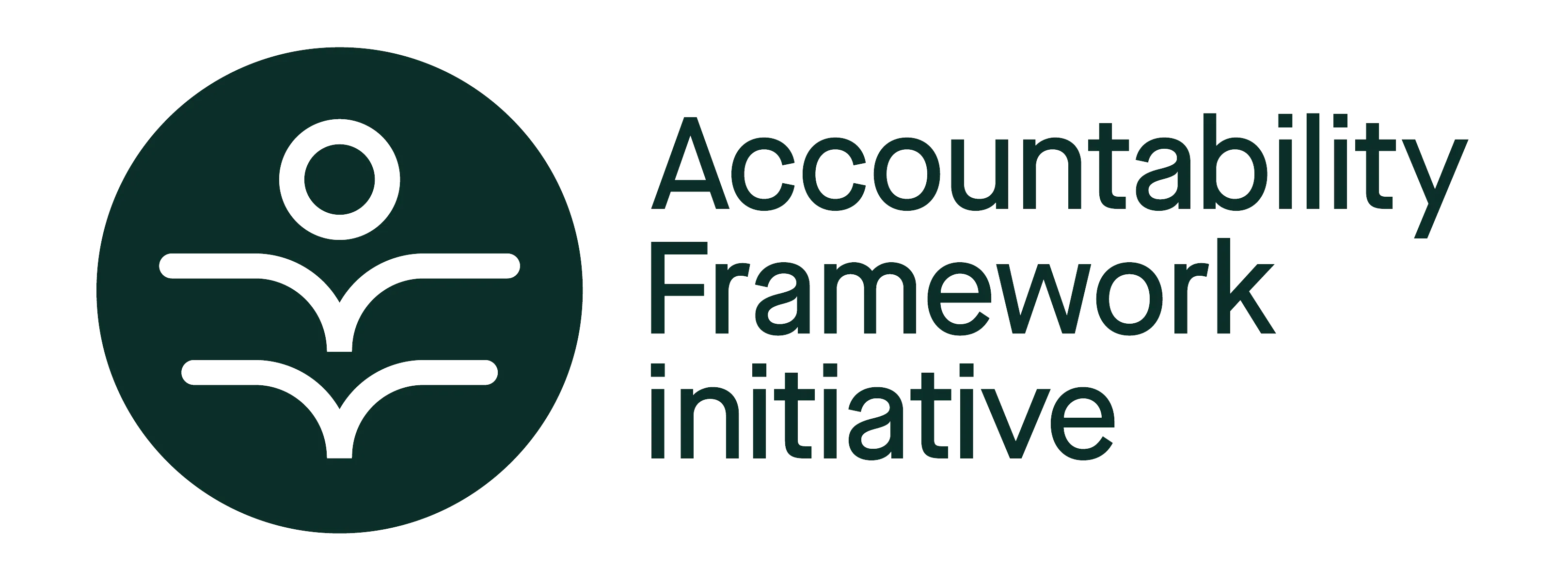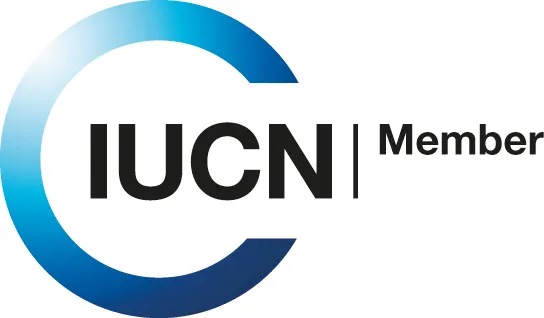
A training course on the long-term protection of HCVs through Management and Monitoring
Never has there been a more critical time for companies to be protecting and enhancing nature through their supply chains and within their sourcing regions, in particular with mounting attention on setting nature targets and nature-based disclosures. The High Conservation Value (HCV) Approach is widely adopted in the forestry sector as part of sustainable forest management and the agricultural sector as part of Deforestation and Conversion Free commitments. Protecting High Conservation Values means securing threatened wildlife, natural and critical habitats, local ecosystem services, and the needs and cultural values of indigenous people and local communities – for that reason it is a nature, people and climate solution.
.webp)
Many companies have made an incredible effort to identify HCVs through HCV assessments on their own production lands or that of their suppliers. They are on a good track to measure and disclose their impacts - and to some degree their dependencies - on nature. The next step is to secure HCVs for good, through the minimising of impacts and putting in place actions to build resilience and restore HCVs.
This involves implementing HCV management and monitoring plans; building up the teams on the ground with the right environment and social expertise, designing an effective plan, improving stakeholder engagement and collaborations, and of course monitoring.
The competencies of the human resources responsible for planning and executing this work on the ground are one of the critical factors for success.
This online course is a valuable resource for companies looking to invest in their staff who are currently designing HCV Management and Monitoring plans or are looking to improve efficiency and impact of their existing plans. This course has been developed by the HCV Network Secretariat – with input and case study material from companies and organisations from across the globe.

Who will benefit from this course?
Individuals directly involved in HCV management and monitoring are encouraged to participate in this course, as this course can enhance their capacity with fundamental knowledge and skills for developing, implementing, and adapting their HCV management plans.
What does this course cover?
Through a combination of online modules and interactive case studies workshops, participants will delve into several HCV Management & Monitoring topics including:
- Understanding and translating the HCV M&M recommendations from assessment reports into organisations' strategic HCV management plans.
- The process of translating strategic plans into detailed and actionable work plans.
- Exploring best practices and techniques for the management and monitoring of HCVs.
- Understanding the monitoring of HCV management plans to track progress and effectiveness, and how monitoring results contribute to an adaptive management cycle.
Whether you are a grower in a large company or a conservation practitioner in a small organisation, this course on HCV Management and Monitoring will make a real difference in your conservation efforts. It will equip you with essential knowledge and skills to better place your efforts into HCV conservation, and be able to contribute to the long-term protection of HCVs.
“Overall,I found the experience as an exceptional learning, especially when we discussed Management & Monitoring action plans and responding to changes in HCVs with different companies, departments, individuals; coming together sharing our experiences to protect and enhance HCVs.” Participant from the dry test.
Join us in safeguarding our planet's outstanding natural and social values through better HCV M&M implementation.
Practical information:
Download the course flyer to learn about course fees and registration dates.
Early bird registration (15% discount) is available until December 15th, 2023.
Questions?
Please contact training@hcvnetwork.org if you have any questions.
Related Posts
The Importance of Considering Land Use Planning and HCV Assessments for Disaster Mitigation
Every decision today shapes the fate of tomorrow's commit to protecting HCVs, and together we build a resilient future we all need and desire.
Read MoreDedicated webpage to more easily access resources on the Forest Integrity Assessment tool
Read More2024 Annual Report Highlights
We launched a bold new strategy and an innovative collaborative governance model. We helped shape the evolution of global standards and sustainability frameworks. Read our 2024 Annual Report to learn more.
Read MoreOur Partnerships
Alongside many global initiatives, our work with partners promotes practices that help meet the global Sustainable Development Goalsand build a greener, fairer, better world by 2030.


Femexpalma
In April 2022, FEMEXPALMA and the HCV Network signed a 5-year cooperation agreement to promote sustainable production of palm oil in Mexico. FEMEXPALMA is a Mexican independent entity that represents palm production at the national level and promotes the increase of productivity in a sustainable way.
With global markets becoming stricter, for Mexican producers to be able to export to key markets such as the European Union, they must meet strict requirements such as certification by the Roundtable on Sustainable Palm Oil (RSPO). To be certified by RSPO, the HCV Approach must be applied prior to the establishment of any new oil palm plantations. With this cooperation agreement, the HCV Network will support FEMEXPALMA’s members and allies to design better strategies to identify, manage and monitor High Conservation Values and support smallholders to achieve RSPO certification and implement good agricultural practices.


High Carbon Stock Approach
The High Carbon Stock Approach (HCSA) is an integrated conservation land use planning tool to distinguish forest areas in the humid tropics for conservation, while ensuring local peoples’ rights and livelihoods are respected.
In September 2020, HCV Network and the HCSA Steering Group signed a five-year Memorandum of Understanding (MoU) to strengthen their collaboration to conserve forests and uphold community rights in tropical forests. The HCS and HCV Approaches are cornerstones of corporate no deforestation and conservation commitments, and increasingly for actors working at different scales. The collaboration aims to further support effective implementation of these commitments through increased uptake of the HCV and HCS tools.
Through this MoU, HCSA and HCVRN are pursuing two main strategic goals:
- Strive to promote the application of the two approaches in tropical moist forest landscapes and explore further opportunities for collaboration.
- Ensure that, where the two approaches are applied together, this happens in a coordinated, robust, credible, and efficient manner, so that HCS forests and HCVs are conserved, and local peoples’ rights are respected.


World Benchmarking Alliance
From May 2022, the HCV Network is an ally at the World Benchmarking Alliance (WBA). WBA is building a diverse and inclusive movement of global actors committed to using benchmarks to incentivise, measure, and monitor corporate performance on the SDGs, and will assess and rank the performance of 2,000 of the world’s most influential companies against seven systems of transformation by 2023.
The scope of WBA’s circular transformation was expanded to cover nature and biodiversity as recognition of the need for greater understanding, transparency and accountability of business impact on our environment. The WBA Nature Benchmark was launched in April 2022, which will be used to rank keystone companies on their efforts to protect our environment and its biodiversity. As HCV Areas are recognised as key areas important for biodiversity, companies that publicly disclose their actions to identify and protect HCVs will contribute to the assessment of their performance against the benchmark.


Taskforce on Nature-related Financial Disclosures - TNFD
The Taskforce on Nature-related Financial Disclosures (TNFD) is a global, market-led initiative, established with the mission to develop and deliver a risk management and disclosure framework for organizations to report and act on evolving nature-related risks, with the aim of supporting a shift in global financial flows away from nature-negative outcomes and toward nature-positive outcomes.
In April 2022, the HCV Network joined the TNFD Forum. The TNFD Forum, composed of over 400 members, is a world-wide and multi-disciplinary consultative network of institutional supporters who share the vision and mission of the task force.
By participating in the Forum, the HCV Network contributes to the work and mission of the taskforce and help co-create the TNFD Framework which aims to provide recommendations and advice on nature-related risks and opportunities relevant to a wide range of market participants, including investors, analysts, corporate executives and boards, regulators, stock exchanges and accounting firms.


Aquaculture Stewardship Council
The Aquaculture Stewardship Council (ASC) is the world’s leading certification scheme for farmed seafood – known as aquaculture – and the ASC label only appears on food from farms that have been independently assessed and certified as being environmentally and socially responsible. In 2021, the HCV Network and ASC formalised their collaboration through a Memorandum of Understanding (MoU). The MoU represents the first step in a fruitful relationship aimed at conserving HCVs in aquaculture. Although, existing guidance on the use of the HCV Approach currently focuses mainly on forestry and agriculture, the HCV Approach is however generic, and in principle also applicable to aquatic production systems. Through this MoU, this is recognised by the Aquaculture Stewardship Council (ASC) in their ASC farm standard, in which the protection of HCV areas is mentioned in the context of expansion


Accountability Framework Initiative
The Accountability Framework initiative (AFi) is a collaborative effort to build and scale up ethical supply chains for agricultural and forestry products. Led by a diverse global coalition of environmental and human rights organizations, the AFi works to create a “new normal” where commodity production and trade are fully protective of natural ecosystems and human rights. To pursue this goal, the coalition supports companies and other stakeholders in setting strong supply chain goals, taking effective action, and tracking progress to create clear accountability and incentivize rapid improvement. In July 2022, the HCV Network joined AFi as a Supporting Partner. AFi Supporting Partners extend the reach and positive impact of the AFi by promoting use of the Accountability Framework by companies, industry groups, financial institutions, governments, and other sustainability initiatives, both globally and in commodity-producing countries.


Biodiversity Credit Alliance
The Biodiversity Credit Alliance (BCA) is a global multi-disciplinary advisory group formed in late 2022. Its mission is to bring clarity and guidance on the formulation of a credible and scalable biodiversity credit market under global biodiversity credit principles. Under these principles, the BCA seeks to mobilize financial flows towards biodiversity custodians while recognising local knowledge and contexts.
The HCVN joined the BCA Forum in August 2023 to learn more from the many organizations already coming together to find effective pathways to opening up credit-based approaches, and how to contribute our knowledge and experience of years of working in a practical way, often with global sustainability standards and their certified producers, to protect what matters most to nature and people.
.webp)
.webp)
Nature Positive Forum
The Nature Positive Initiative is a group of stakeholders coming together to find ways to unlock success and achieve Nature Positive - a global societal goal defined as ‘halt and reverse nature loss by 2030 on a 2020 baseline, and achieve full recovery by 2050’, in line with the mission of the Kunming-Montreal Global Biodiversity Framework.
Core work includes preserving the integrity of ‘Nature Positive’ as a measurable 2030 global goal for nature for business, government, and other stakeholders, and providing the tools and guidance necessary to allow all to contribute. The initiative also advocates for the full implementation of the Kunming-Montreal Global Biodiversity Framework by governments and other stakeholders.


IUCN
IUCN is a membership Union uniquely composed of both government and civil society organisations. It provides public, private, and non-governmental organisations with the knowledge and tools that enable human progress, economic development, and nature conservation to take place together.
Created in 1948, IUCN is now the world’s largest and most diverse environmental network, harnessing the knowledge, resources and reach of more than 1,400 Member organisations and around 15,000 experts. It is a leading provider of conservation data, assessments, and analysis. Its broad membership enables IUCN to fill the role of incubator and trusted repository of best practices, tools, and international standards.
IUCN provides a neutral space in which diverse stakeholders including governments, NGOs, scientists, businesses, local communities, indigenous peoples’ organisations, and others can work together to forge and implement solutions to environmental challenges and achieve sustainable development.
Working with many partners and supporters, IUCN implements a large and diverse portfolio of conservation projects worldwide. Combining the latest science with the traditional knowledge of local communities, these projects work to reverse habitat loss, restore ecosystems, and improve people’s well-being.

Get Involved
Our Mission as a network is to provide practical tools to conserve nature and benefit people, linking local actions with global sustainability targets.
We welcome the participation of organisations that share our vision and mission to protect and enhance High ConservationValues and the vital services they provide for people and nature. By collaborating with the Network, your organisation can contribute to safeguarding HCVs while gaining valuable insights and connections that support your sustainability goals.
We are seeking collaborative partners to help expand and enhance our work, as well as talented professionals who can join the growing Secretariat team, and for professionals who can contribute to the credible identification of High Conservation Values globally.
Join us in securing the world’s HCVs and shaping a sustainable future.


